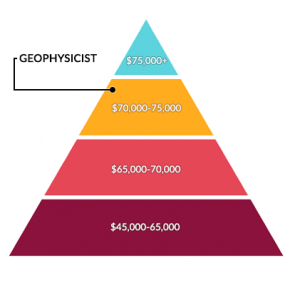All Categories
Featured
Table of Contents
Airborne Geophysical Surveys in Secret Harbour Oz 2023
Link with MBA programs seeking candidates like you. Research study. Link with master's programs around the nation to get an edge over the competition.

A geophysicist studies various elements of the earth. According to the U.S. Geological Study, they study gravity, magnetic, electrical, and seismic activity incidents. Geophysicists also record, assess, and take measurements of geographical features and abnormalities. View a video to discover what a geophysicist: Geophysicists should earn a minimum of a bachelor's degree; nevertheless, this is for an entry-level position.
If you desire research you must pursue a Ph. D. Undergrad coursework generally includes geology, mathematics, ecological science, or physics. Postgraduate degree require more particular research studies in the specialized of choice. Locations can include oceanography, atmospheric physics, meteorology, planetary, petroleum, ecological, and mining. Task potential customers are higher if you have a strong background in computer science or technology.
Geoscientists : Occupational Outlook Handbook in Manning Western Australia 2022
Access to these opportunities might be limited depending upon where you live; however, internships or summer programs with geophysical business, university geophysics department, or the U.S. Geological Study can be choices. You can find a list of a list of chances on the United States Geological Study (USGS) sites' Pathway Programs tab (opens in another link).
If you have yet to graduate high school, taking as many science and mathematics classes as possible would be a plus. Geophysicists likewise work with computer systems while researching, so computer courses can also be valuable, as mentioned previously in this short article. Numerous geophysicists focus on an area of geophysics. The job description would change pending on the specialty.
A geophysicist's responsibilities can include determining, tracking, and recording information from different physical residential or commercial properties in the world. They likewise evaluate and test information got. Geophysicists typically need to travel worldwide to examine geological events that have happened or may have been predicted. Geophysics is a research-based career field, therefore one need to have the capability to hypothesize, problem-solve, and question or difficulty formerly held assumptions from their gathered data.
What Does A Geophysicist Do? in Maddington Western Australia 2022
Jay Wellik, a geophysicist, research studies volcanos. Geophysicists generally work full-time hours; nevertheless, they frequently work irregular hours, as discussed formerly.

You can find extra information about Geophysicists in addition to additional educational materials on the U.S. Geological Survey website (links open in a brand-new window). Laura Stern, of the U.S. Geological Survey at the Gas Hydrates Laboratory in Menlo Park, California: We make a variety of various hydrates in the laboratory.
We also make carbon dioxide hydrate, ethane hydrate, gas, a number of various structures. Liquid nitrogen is really cold. It's about 100 degrees chillier than the temperature at which these hydrate samples would dissociate, when they would disintegrate to ice plus gas on the tabletop. In here we have a little piece of methane hydrate.
Geophysics in Martin Oz 2022
They look like snow, it looks like compressed snow but truthfully, it does include gas inside. It's reverting to ice plus gas and then as the ice would melt as it continues to warm, it will end up being water plus gas.
My name is Steve Kirby, I'm a Geophysicist here at the U.S. Geological Study in Menlo Park. I work with Laura Stern who is also a Geophysicist in this lab that adheres towards the investigation of planetary ices and gas hydrates. Gas hydrates in nature take place in extremely remote locations and they are really intricate with the interactions and conditions that they form under and samples that are raised are under some sort of alternation or decomposition.
This is an uncommon lab and there are only a handful of them worldwide and we are very fortunate to be here at the Geological Survey and to have the chance of working on them. Bureau of Labor Data, U.S. Department of Labor, Occupational Outlook Handbook, Geoscientists. National Center for O * Internet Advancement.
Marine Geology And Geophysics in Shelley Australia 2023
This video was produced by the government for the U.S. Geological Survey. The USGS Gas Hydrates Lab is funded by the Department of Energy and the USGS Gas Hydrates Job.
Latest Posts
Geophysical Survey In Archaeology in Neerabup Australia 2022
Geophysicists in Glen Forrest WA 2020
Geophysical Survey in Lockridge Oz 2023